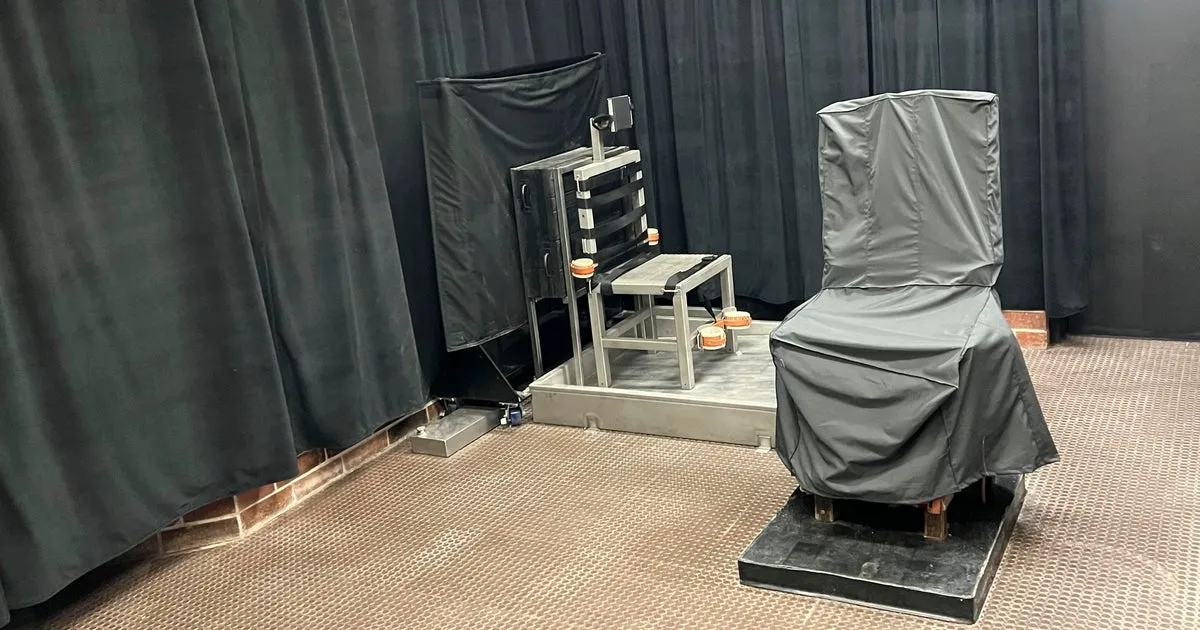
A South Carolina inmate, Stephen Bryant, who committed a gruesome murder over two decades ago, is scheduled for execution next month. The South Carolina Supreme Court issued a death warrant for the 44-year-old convict on Friday, denying his lawyers' request for a delay. The defense argued that their work with the federal court system was hindered due to the ongoing U.S. government shutdown. Earlier this week, the U.S. Supreme Court declined to review Bryant's death sentence, solidifying the impending execution date of November 14.
While Bryant is facing execution for a singular murder, prosecutors revealed that he is also responsible for the deaths of two additional men during a terrifying spree in Sumter County, South Carolina, in October 2004. These men were shot and killed while they were urinating on the roadside, highlighting the randomness and cruelty of his actions. This execution marks a significant moment as Bryant will be the 50th person executed in South Carolina since the death penalty was reinstated in 1985 and the seventh inmate executed in less than 14 months after the state resumed lethal injections.
With a deadline of October 31 looming, Bryant must decide between three execution methods: lethal injection, firing squad, or the electric chair. Since the state’s long pause in executions, four inmates have opted for lethal injection, while two have chosen the firing squad. The recent uptick in executions reflects a national trend, with a total of 38 men executed in the U.S. this year alone and more scheduled before the end of 2024.
In a chilling account of the murder he committed, Bryant admitted to killing Willard "TJ" Tietjen after claiming to have car trouble and stopping at Tietjen's secluded home. Tietjen was shot multiple times, and in a gruesome display, someone used a blood-soaked potholder, crafted by Tietjen's daughter, to write “victem 4 in 2 weeks. catch me if u can” on the wall. This act of taunting added to the horror of the crime, as Tietjen's daughter testified about receiving unsettling phone calls from Bryant, who identified himself as “the prowler.”
The killings sparked widespread fear within Sumter County, home to approximately 100,000 residents. As authorities searched for the murderer, they advised the public to be cautious of strangers asking for help, creating an atmosphere of anxiety and paranoia.
According to Bryant's defense team, he struggled significantly in the months leading up to the murders, grappling with memories of being sexually abused by four male relatives during childhood. His aunt testified about his distress, describing him as appearing tortured and in pain. To cope, Bryant reportedly turned to drugs, including methamphetamine and marijuana laced with bug spray.
Since the resumption of executions in South Carolina, the methods employed have come under scrutiny. Inmates executed since September 2024 have argued that the procedures are cruel and unusual punishments. For example, during a firing squad execution, it was claimed that the shooters nearly missed the heart of the second inmate, Mikal Mahdi, causing prolonged suffering. However, witnesses have reported that prisoners appeared to lose consciousness within minutes, raising questions about the efficacy and humanity of the lethal injection process.
As of now, South Carolina has 29 inmates on death row, with no clemencies ever granted in the state. The controversies surrounding execution methods and the psychological backgrounds of inmates like Bryant continue to fuel debates about the death penalty's morality and effectiveness in the United States.